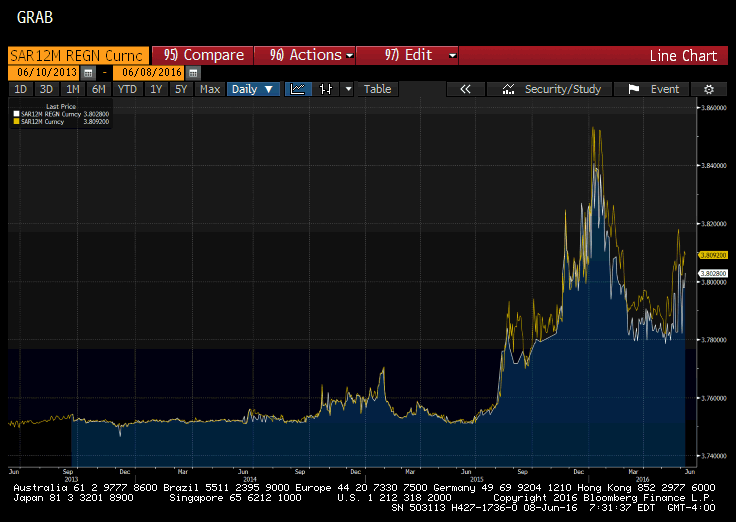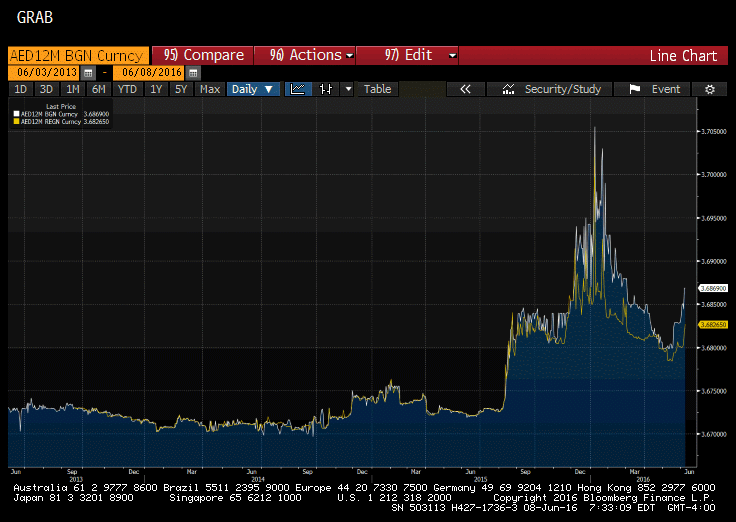With today's gains, the price of Brent Oil has nearly doubled from its lows in January. Of course, the price of oil is still less than half of levels that prevailed two years ago. At the same time, many leveraged investors cast a jaundiced eye toward currency pegs. Many have concluded that the Middle East currency pegs cannot be sustained.
Through a combination of the moral suasion and the power of sovereign, Saudi Arabia and UAE officials have managed to deter some speculation in the onshore markets. The offshore (NDF) markets are more difficult to control and pressure on the pegs remains evident.
This Great Graphic, created on Bloomberg, shows the 12-month forward price for the Saudi riyal. The yellow line is the offshore market and the white line is the onshore. Conditions were relatively calm until last summer. Pressures built and peaked earlier this year, around the time that oil prices bottomed. While prices did not fully return to status quo ante, they have been rising again over the past month or so.

Saudi officials first responded with moral suasion, stepping up its monitoring efforts earlier this year. Officials are now drawing on the power of the sovereign. Saudi Arabia recently banned the sale of options and other derivatives to speculators for the purpose of challenging the currency peg. It is also requiring banks to provide more information about their clients and product offerings.
The UAE is in a similar position, but more so. As this next chart illustrates, the gap between the onshore dirham (white line) and offshore dirham (yellow line) is wider than in the Saudi case. The central bank has reaffirmed its commitment to the peg, but UAE officials lag behind Saudi Arabia in backing up their words with action. Rather than draw much attention to it, the UAE central bank governor has downplayed its significance.

There is no question that the drop in oil prices has cut government revenue in Saudi Arabia and UAE. The issue is whether a devaluation is a reasonable adjustment mechanism. A devaluation would not boost oil exports while boosting the price of imports. Under current conditions, we see no significant advantage but recognize breaking of the peg to risk injecting instability at a time of great economic, political and social changes.
If that is true, that Saudi and UAE declarations of their commitment to the currency pegs are sincere, the next question is whether or not speculators can topple the pegs. We do not think that the NDF market can force a devaluation on the likes of Saudi Arabia and the UAE. China's use of the offshore yuan market is a different story. It functions differently, and CNH is not the same thing as a yuan NDF. The PBOC is clearly committed to the offshore yuan market, but not to the NDF market.
There are additional measures that Saudi and UAE officials can take to exert even more control over the onshore currency market. However, over time, if they are to be successful in attracting foreign investors to equities and fixed income, officials may want to introduce greater movement in the exchange rates. Now and in the period ahead, the stability offered by the pegs is welcome.
